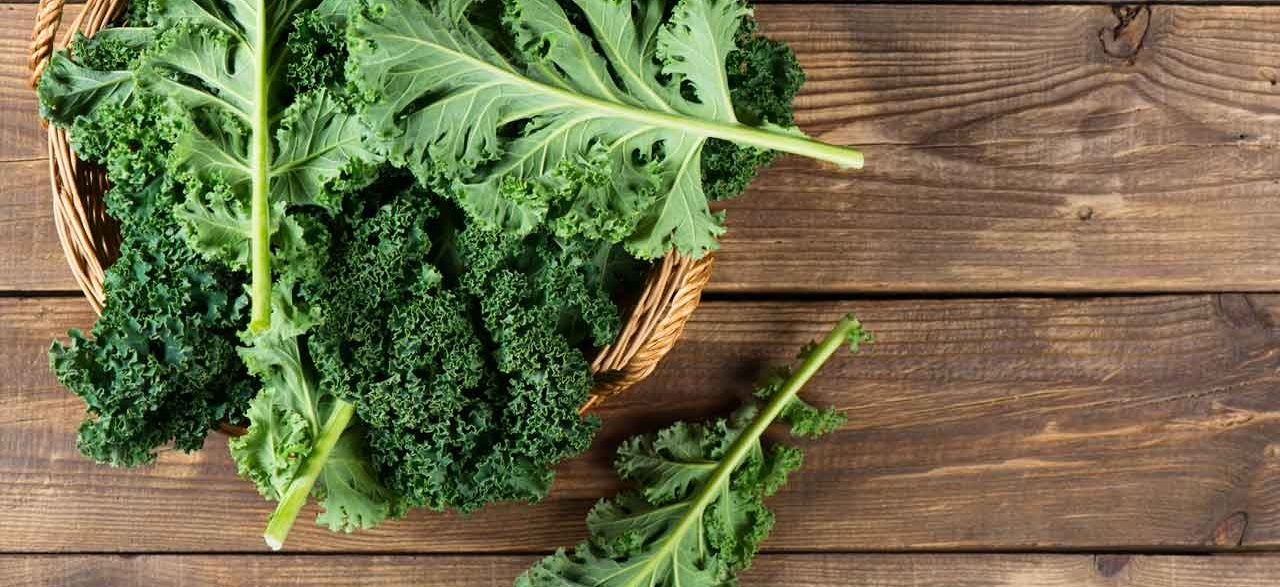The Health Benefits of Kale

Don’t underestimate the health benefits of kale, which is packed with fiber and vitamin C and is so good for you it can help protect you from diabetes and heart disease.
Kale is so good for you that health-minded Yale students have taken to wearing t-shirts and sweatshirts with KALE printed in the Yale logo. You might think the health benefits of kale have been oversold, but, in fact, this leafy green really is a powerhouse: it will help you ward off diabetes, heart disease, and possibly cancer, while providing nutrients good for your bones.
Kale grows well in the winter, so you might be able to get it year-round from your own garden or farmer’s market.
Curly kale, the most common, can be bright or dark green or purple. Lacinato or dinosaur kale is blue-green and scaly, and less bitter than the curly variety. Red Russian kale is the sweetest, most delicate variety. Stick to the red leaves rather than the woody purple stalks.
YOU MIGHT ALSO LIKE: Acupuncture for Weight Loss
The health benefits of kale
Diabetes. Among the many health benefits of kale, let’s start with fiber, which can lower blood sugar levels. The Dietary Guidelines for Americans 2015-2020 recommend between 25 and 34 grams of fiber a day for adults. A cup of cooked kale (about 130 g) provides 2.6 g of fiber.
Kale also contains alpha-lipoic acid, which in high doses, research suggests, can help people with diabetes increase their insulin sensitivity and decrease pain. Eating kale will boost your levels.
Heart disease. Fiber also protects the heart, and so do the potassium, vitamin C, and vitamin B6 in kale. Eating lots of potassium could lower your risk of dying early for any reason by as much as 20 percent. Dieticians especially recommend increasing potassium — and cutting sodium — to cut heart disease risk. Potassium actually dilates blood vessels.
In one study, participants who consumed more than 4,000 milligrams of potassium each day had a 49 percent lower risk of death from ischemic heart disease than people who took in under 2,000 a day. Potassium will also help your bones and help prevent kidney stones. A cup of cooked kale provides nearly 300 mg of potassium.
Cancer. Green vegetables contain chlorophyll, which can help prevent your body from absorbing carcinogenic chemicals that arise from grilling meat at high temperatures. Make sure you have some greens with your chargrilled barbecue.
Bone health. Eating vitamin K is important to improve your absorption of calcium and protect your bones. A cup of cooked kale gives you more than 1,000 micrograms, plenty more than the daily requirement.
Vitamin C. That same cup gets you close to the daily requirement for vitamin C, while providing a bit of iron, which the vitamin C will help you absorb. Vitamin C is important for your skin, hair, and bones.
Should you choose between spinach and kale?
Kale has much more vitamin C and, because it is low in oxalate (unlike spinach), both the calcium and iron it contains are more easily absorbed.
Updated:
April 09, 2020
Reviewed By:
Janet O’Dell, RN